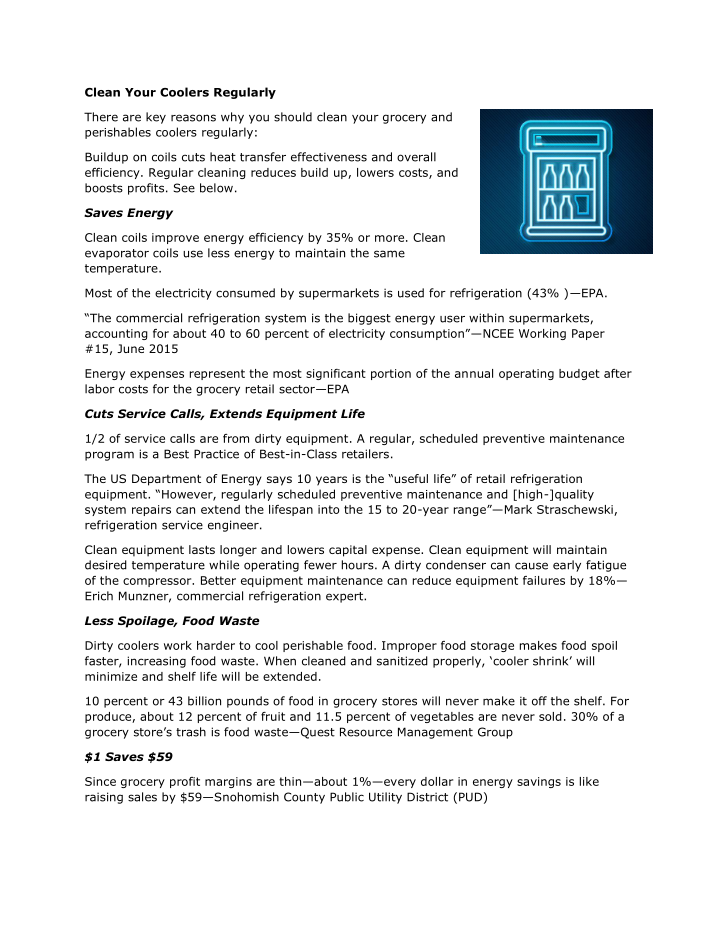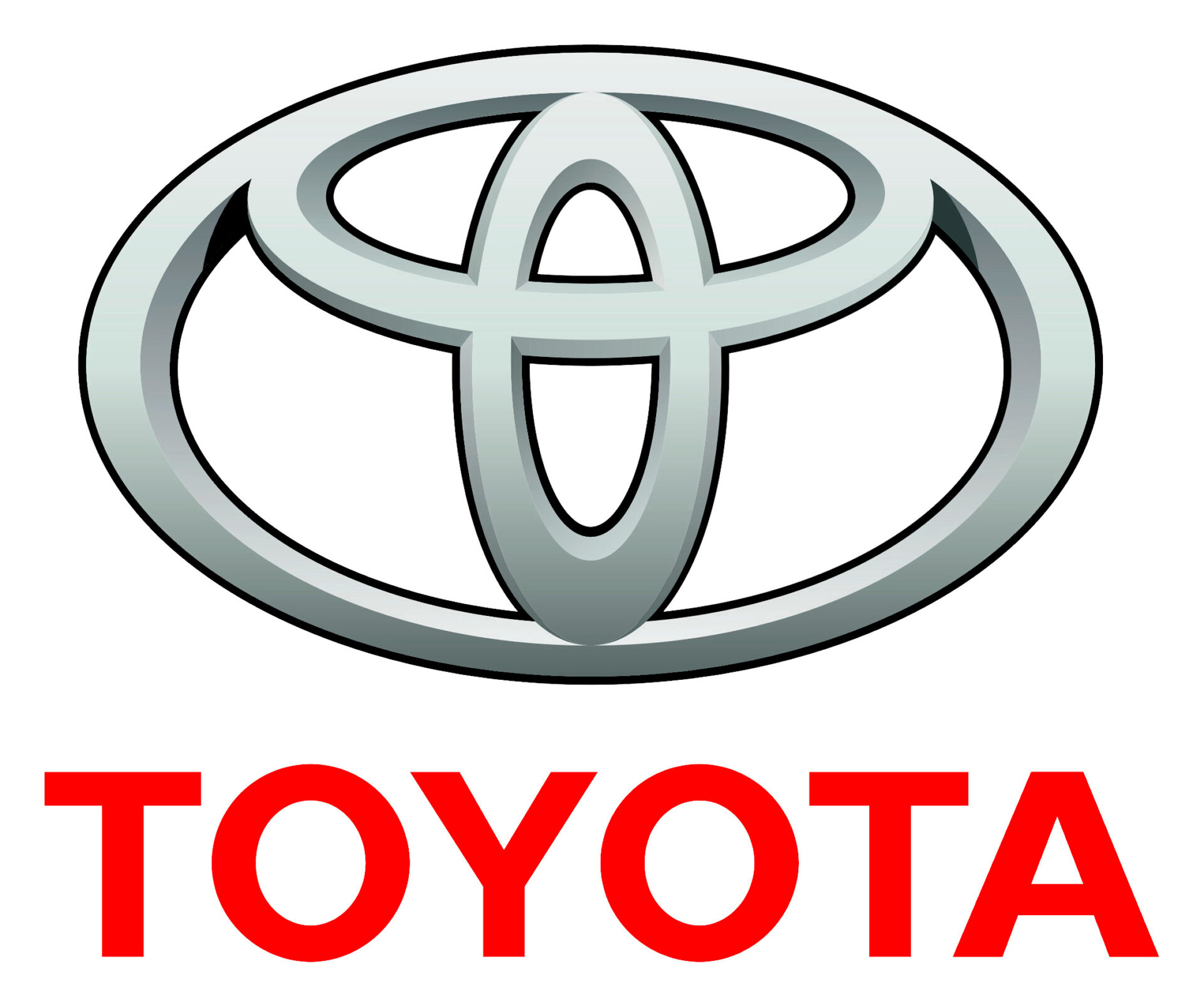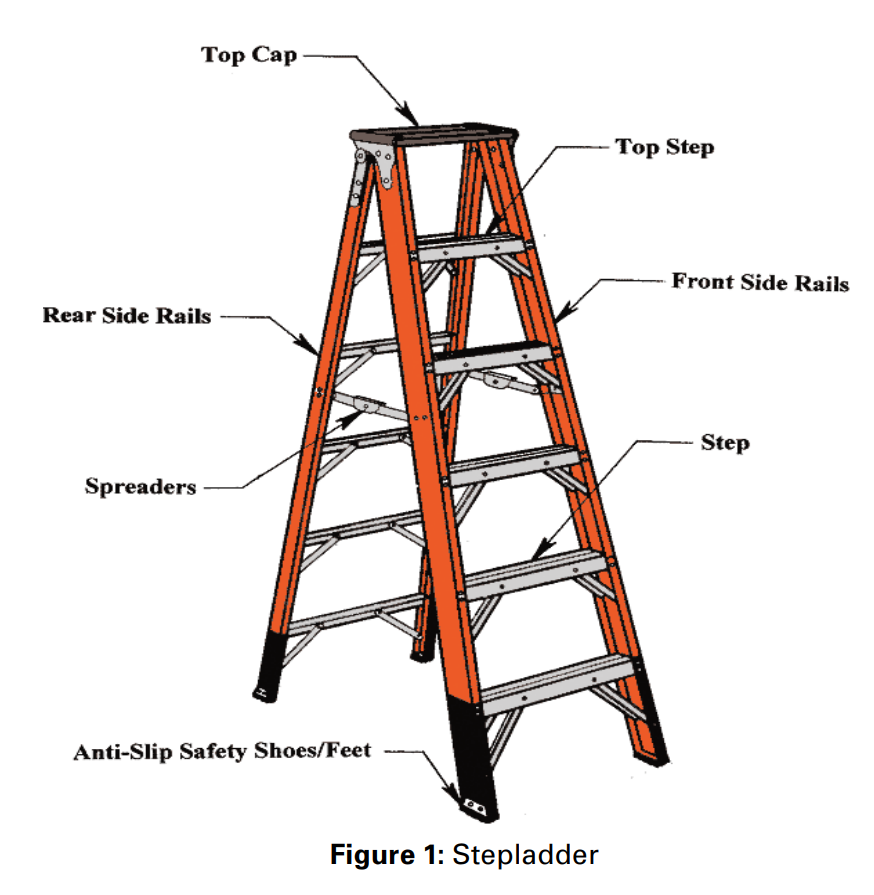Clean Your Coolers Regularly
By Joseph Welsh, aka, “Joe the Grocer”
There are key reasons why you should clean your grocery and perishables coolers regularly:
Buildup on coils cuts heat transfer effectiveness and overall efficiency. Regular cleaning reduces build up, lowers costs, and boosts profits. See below.
Saves Energy
Clean coils improve energy efficiency by 35% or more. Clean evaporator coils use less energy to maintain the same temperature.
Most of the electricity consumed by supermarkets is used for refrigeration (43% ) — EPA.
“The commercial refrigeration system is the biggest energy user within supermarkets, accounting for about 40 to 60 percent of electricity consumption” — NCEE Working Paper #15, June 2015
Energy expenses represent the most significant portion of the annual operating budget after labor costs for the grocery retail sector — EPA
Cuts Service Calls, Extends Equipment Life
1/2 of service calls are from dirty equipment. A regular, scheduled preventive maintenance program is a Best Practice of Best-in-Class retailers.
The US Department of Energy says 10 years is the “useful life” of retail refrigeration equipment. “However, regularly scheduled preventive maintenance and [high-]quality system repairs can extend the lifespan into the 15 to 20-year range” — Mark Straschewski, refrigeration service engineer.
Clean equipment lasts longer and lowers capital expense. Clean equipment will maintain desired temperature while operating fewer hours. A dirty condenser can cause early fatigue of the compressor. Better equipment maintenance can reduce equipment failures by 18% — Erich Munzner, commercial refrigeration expert.
Less Spoilage, Food Waste
Dirty coolers work harder to cool perishable food. Improper food storage makes food spoil faster, increasing food waste. When cleaned and sanitized properly, ‘cooler shrink’ will minimize and shelf life will be extended.
10 percent or 43 billion pounds of food in grocery stores will never make it off the shelf. For produce, about 12 percent of fruit and 11.5 percent of vegetables are never sold. 30% of a grocery store’s trash is food waste — Quest Resource Management Group
$1 Saves $59
Since grocery profit margins are thin — about 1% — every dollar in energy savings is like raising sales by $59 — Snohomish County Public Utility District (PUD)
Cuts Food-borne Illness
Cleanliness is a major factor in preventing foodborne illness (USDA). Clean grocery coolers help prevent the growth of mold and bacteria, and the spread of germs.
Clean coils enable coolers to work more efficiently to keep food fresh, while preventing microbial growth.
[Indoor Health Council note: One of our supporters offers cooler cleaning equipment.]
About Joe
Joseph Gray Welsh is the President and Chief Executive Officer of Joseph Welsh Consulting LLC. Known in the Food Industry as “Joe the Grocer,” Welsh is a Global Supermarket Consultant and Food Systems Expert and is based in Las Vegas, Nevada.
Having served in nearly every possible retail and wholesale food job over the last 43 years, ‘Joe’ continues to perform project work globally, build Food Ecosystems, provide Expert Witness testimony in litigation matters, represent grocers and government entities in Food Deserts and Industry related matters. Welsh is generally considered a Global leader in Food Insecurity issues. He has owned, operated, consulted, and managed stores of all formats, sizes, demographic settings, and competitive situations; across a broad geography.
He has a Master’s degree in Accounting and Finance, trained in programs administered by Harvard Business School, graduated from SMU (Supermarket Manager University), RCU (Retail Counselor University), and attended and taught many industry seminars in retailing, perishables, shrink management, merchandising, meat/specialty foods and more. Welsh is widely known for his financial acumen, retail prowess, and grocery science.
Joseph Welsh speaks as “Joe-The-Grocer” in an entertaining presentation that reflects on his years in the food business, youth sports, and on current food and supermarket issues.








